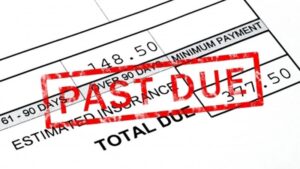Creditors Voluntary Liquidations Will Be Popular in 2011
Thousands of struggling company owners will voluntarily close their businesses this year, and most of those that do will use a Creditors Voluntary Liquidation (CVL) process.
A CVL is perhaps more popular than a Compulsory Liquidation as it allows directors to put a company into liquidation with their shareholders’ approval and permission from creditors.
If it’s inevitable your business is about to go bust as a result of declining trade, you may as well be in control as best as you can.
Once shareholders agree to a CVL, the directors find an appropriately skilled Insolvency Practitioner (a liquidator) to create a statement of affairs, and guide them through the liquidation process.
Directors try to appoint a liquidator who will be friendly towards them because if the liquidator believes there has been any malpractice, he must examine the course of company failure and prepare a Directors Disqualifications Act (DDA) report.
The report is passed on to the Insolvency Service who may take action and order misfeasance proceedings or a disqualification.
The liquidator invites the company’s creditors to a conference and requests they vote to shut down the firm since it can’t pay its debts. The statement of affairs is used to show creditors the company is financially troubled.
By law, the liquidator must act in the interest of creditors not directors. If creditors are unhappy, the liquidator may be left with a bad reputation. Ultimately, it is the creditors who have the final say on who the liquidator is. If the creditors are unhappy they should say and appoint their own liquidator. Friendly creditors usually give a CVL their blessing. A director is also entitled to vote for a CVL if the company owes them money.
The IP collects in any debts, sells any assets and after discharging his costs, pays any remaining money as a dividend to the creditors.
But the truth is; there’s rarely any dividend because the resources realised merely cover the expenses of the procedure.
It is not hard to shut down an insolvent company if you get the proper guidance.
Contact Insolvency and Law for useful advice if you feel your organisation might be insolvent.
Debtor Alert: Theodore Global Ltd
Theodore Global Ltd: A Company That Fails to Pay Its Staff and Trades While Insolvent If you’re thinking about working with, or for Theodore Global…
Read MoreIrene MacKenzie- The Gatekeeper of Silence
Irene MacKenzie and the Web Around William Jackson In the shadows of the alternative investment world, where buzzwords are abundant but redemptions are not, one…
Read MoreBilly Jackson Update Part 2: Companies of Interest
In our last blog on Billy Jackson, we exposed the web of enablers supporting his business operations. In this follow-up, we turn the spotlight on…
Read MoreThe Grim Truth for Loan Note Holders -79th Luxury Living Six Ltd (LL6)
No assets or safeguards. No clear path to recovery. If you’re one of the many investors who entrusted your money to The 79th Group’s loan…
Read More




